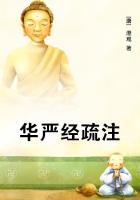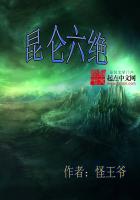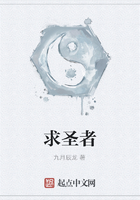(17) This character of Joash, the son of Jehoahaz, that "he was a good man, and in his disposition not at all like to his father,"seems a direct contradiction to our ordinary copies, which say (2Kings 13:11) that "he did evil in the sight of the Lord; and that he departed not from all the sins of Jeroboam, the son of Nebat, who made Israel to sin: he walked therein." Which copies are here the truest it is hard positively to determine.If Josephus's be true, this Joash is the single instance of a good king over the ten tribes; if the other be true, we have not one such example.
The account that follows, in all copies, of Elisha the prophet's concern for him, and his concern for Elisha, greatly favors Josephus's copies, and supposes this king to have been then a good man, and no idolater, with whom God's prophets used not to be so familiar.Upon the whole, since it appears, even by Josephus's own account, that Amaziah, the good king of Judah, while he was a good king, was forbidden to make use of the hundred thousand auxiliaries he had hired of this Joash, the king of Israel, as if he and they were then idolaters, 2 Chronicles 25:6-9, it is most likely that these different characters of Joash suited the different parts of his reign, and that, according to our common copies, he was at first a wicked king, and afterwards was reclaimed, and became a good one, according to Josephus.
(18) What I have above noted concerning Jehoash, seems to me to have been true also concerning his son Jeroboam II., viz.that although he began wickedly, as Josephus agrees with our other copies, and, as he adds, "was the cause of a vast number of misfortunes to the Israelites" in those his first years, (the particulars of which are unhappily wanting both in Josephus and in all our copies,) so does it seem to me that he was afterwards reclaimed, and became a good king, and so was encouraged by the prophet Jonah, and had great successes afterward, when "God had saved the Israelites by the hand of Jeroboam, the son of Joash,"2 Kings 14:27; which encouragement by Jonah, and great successes, are equally observable in Josephus, and in the other copies.
(19) When Jonah is said in our Bibles to have gone to Tarshish, Jonah 1:3, Josephus understood it that he went to Tarsus in Cilicia, or to the Mediterranean Sea, upon which Tarsus lay; so that he does not appear to have read the text, 1 Kings 22:48, as our copies do, that ships of Tarshish could lie at Ezion-geber, upon the Red Sea.But as to Josephus's assertion, that Jonah's fish was carried by the strength of the current, upon a nean, it is by no means an improbable determination in Josephus.
(20) This ancient piece of religion, of supposing there was great sin where there was great misery, and of casting lots to discover great sinners, not only among the Israelites, but among these heathen mariners, seems a remarkable remains of the ancient tradition which prevailed of old over all mankind, that IProvidence used to interpose visibly in all human affairs, and storm, as far as the Euxine Sea, it is no way impossible; and since the storm might have driven the ship, while Jonah was in it never to bring, or at least not long to continue, notorious judge, near to that Euxine Sea, and since in three more days, while but for notorious sins, which the most ancient Book of he was in the fish's belly, that current might bring him to the Job shows to have been the state of mankind for about the Assyrian coast, and since withal that coast could bring him former three thousand years of the world, till the days of Job nearer to Nineveh than could any coast of the Mediterranian and Moses.
(21) This account of an earthquake at Jerusalem at the very same time when Uzziah usurped the priest's office, and went into the sanctuary to burn incense, and of the consequences of the earthquake, is entirely wanting in our other copies, though it be exceeding like to a prophecy of Jeremiah, now in Zechariah 14:4, 5; in which prophecy mention is made of "fleeing from that earthquake, as they fled from this earthquake in the days of Uzziah king of Judah;" so that there seems to have been some considerable resemblance between these historical and prophetical earthquakes.
(22) Dr.Wall, in his critical notes on 2 Kings 15:20, observes, "that when this Menahem is said to have exacted the money of Israel of all the mighty men of wealth, of each man fifty shekels of silver, to give Pul, the king of Assyria, a thousand talents, this is the first public money raised by any [Israelite] king by tax on the people; that they used before to raise it out of the treasures of the house of the Lord, or of their own house; that it was a poll-money on the rich men, [and them only,] to raise ?353,000, or, as others count a talent, ?400,000, at the rate of ?6 or ?7 per head; and that God commanded, by Ezekiel, ch.45:8;46:18, that no such thing should be done [at the Jews'
restoration], but the king should have land of his own."(23) This passage is taken out of the prophet Nahum, ch.2:8-13, and is the principal, or rather the only, one that is given us almost verbatim, but a little abridged, in all Josephus's known writings: by which quotation we learn what he himself always asserts, viz.that he made use of the Hebrew original and not of the Greek version]; as also we learn, that his Hebrew copy considerably differed from ours.See all three texts particularly set down and compared together in the Essay on the Old Testament, page 187.
(24) This siege of Samaria, though not given a particular account of, either in our Hebrew or Greek Bibles, or in Josephus, was so very long, no less than three years, that it was no way improbable but that parents, and particularly mothers, might therein be reduced to eat their own children, as the law of Moses had threatened upon their disobedience, Leviticus 26;29;Deuteronomy 28:53-57; and as was accomplished in the other shorter sieges of both the capital cities, Jerusalem and Samaria;the former mentioned Jeremiah 19:9; Antiq.B.IX.ch.4.sect.4, and the latter, 2 Kings 6:26-29.

